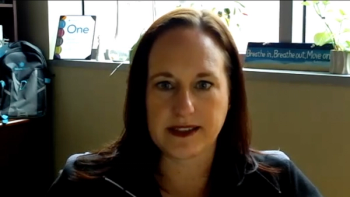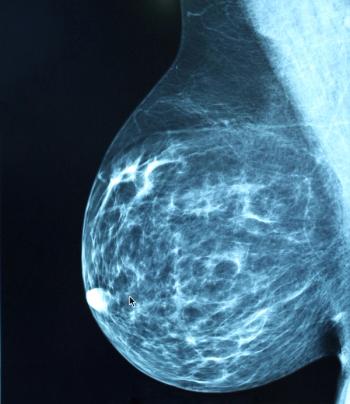
Oncologists Hope Congress Will Exempt Cancer Drugs From Sequester Cuts
Oncologists hit by sequester budget cuts to the cost of purchasing and administering cancer drugs are hoping that the potentially devastating impact on Medicare cancer patients will force a quick legislative fix in Congress.
Oncologists hit by sequester budget cuts to the cost of purchasing and administering cancer drugs are hoping that the potentially devastating impact on Medicare cancer patients will force a quick legislative fix in Congress.
“The administration seems to be oblivious to the crisis happening in cancer care,” said Ted Okon, executive director of the Community Oncology Alliance (COA). “The president’s budget doubles down on sequester cuts and essentially applies even deeper cuts to cancer drugs. We’re hoping that Congress will help.”
To that end, Rep. Renee Ellmers (R-NC) recently introduced the Cancer Patient Protection Act of 2013 (H.R. 1416), which would exempt chemotherapy drugs from the sequester-mandated 2% reduction in Medicare payments and would compensate oncologists for lower reimbursements paid since the budget cuts went into effect April 1. In addition, Rep. Pete Sessions (R-TX) and others in Congress have sent a letter to the Department of Health and Human Services to protest the cuts.
The sequester cuts are particularly damaging to cancer clinics because they apply not only to physician service payments but also to the cost of chemotherapy drugs covered under Part B. Since Medicare payments, which are based on a drug’s average sales price (ASP) plus a 6% administration fee, already fall short of physicians’ costs, the cuts may force clinics to turn away Medicare patients or even close their doors, says Okon.
Practices that have a large population of Medicare patients, especially smaller clinics, are finding themselves in dire straits, says Okon. “As their claims come in, they’re worried that they are going to be underwater and they will really have to take some drastic action.”
A statement by the COA, the American Society of Clinical Oncology, and other oncology advocacy groups, notes that the cuts are another blow to clinics already struggling.
According to the statement, until recently, more than 80% of cancer patients in the United States received treatment at physicians’ offices in the community. “Since 2008, more than 1,200 community cancer care centers have closed, consolidated, or reported financial problems. The result has been patient access problems, and increased costs to seniors, Medicare, and taxpayers due to the migration of Medicare patients to costlier care settings, and new barriers to care for elderly patients in remote areas. When community cancer clinics close their doors, access to cancer care is compromised for all cancer patients, but especially vulnerable seniors.”
According to a survey of cancer clinics conducted by the COA and released in March, the sequester cuts will force 72% of cancer clinics to either stop accepting new Medicare patients or send all of their Medicare patients to hospitals for treatment.
“This will have a huge adverse effect on our practice, but we have to continue to treat our patients,” said one respondent quoted by the survey. “If cuts continue to Medicare physician fees, then we will have to re-evaluate whether or not we will take new Medicare patients, or if we can even continue to see existing Medicare patients.”
The
Newsletter
Stay up to date on recent advances in the multidisciplinary approach to cancer.



































